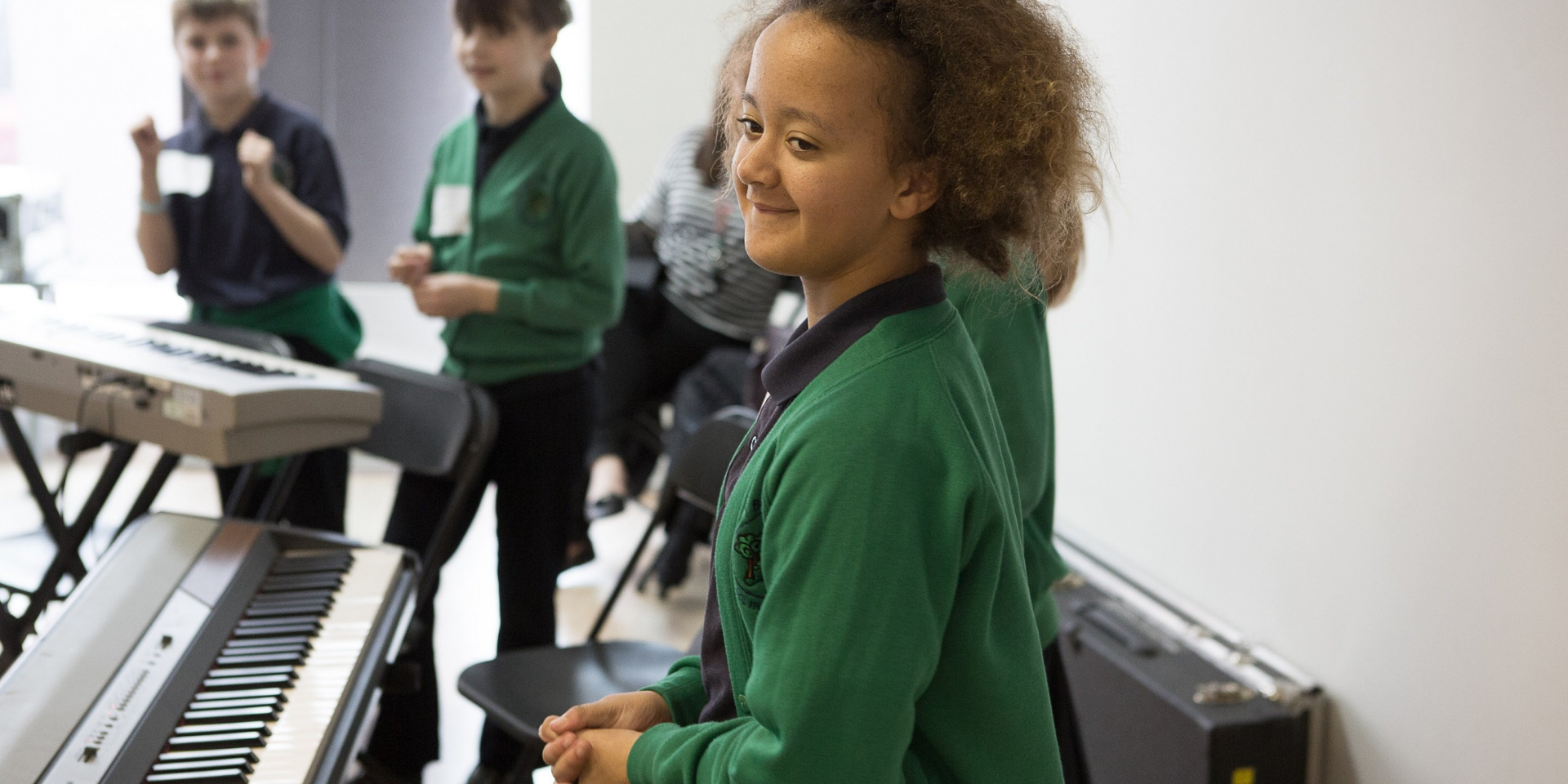
Linking Graded Music Exams to Progress 8
BY: Annabel Thomas
17 June 2021
It’s quite a rare thing when school performance tables can work in favour of the arts – the focus of education ministers over recent years on the EBacc and STEM subjects has had a negative impact on the take-up of arts subjects at GCSE, BTEC and A Level and we know from the teachers and schools we work with that this year has been as challenging as any.
However, one element of the Progress 8 (P8) scores may work in the favour of music – especially if a school isn’t able to offer a full GCSE or BTEC in Music for any reason.
What is Progress 8?
Progress 8 is an accountability measure introduced in 2016 to track how well schools are performing. Progress 8 relates to a students’ progress from their Year 6 predicted outcomes. Schools are measured against three ‘buckets’ – English & Maths; EBacc subjects; and an ‘open’ bucket, where graded music exams sit. The score is calculated across eight subjects, and one of these can be a graded music exam. This is then reworked into an overall score for a school, which usually ranges from -1 to +1, with 0 being average.
The 2021 points value attributed to a graded music or theory exam is as follows:
| Graded music performance/theory level | Grade |
2021 Progress 8 |
| Grade 8 | Distinction | 8.5 |
| Merit | 8.5 | |
| Pass | 8.5 | |
| Grade 7 | Distinction | 8.5 |
| Merit | 8.5 | |
| Pass | 7.0 | |
| Grade 6 | Distinction | 8.5 |
| Merit | 8.5 | |
| Pass | 7.0 |
What does that mean for my school?
This means that you can enter students’ success in higher grades of music and it will help to increase your schools’ overall standing. This is particularly useful if you are working with students who may struggle to access a full GCSE curriculum or if you are not able to offer a Music GCSE, as the Progress 8 score is calculated on 8 subjects, regardless of if a student sits 8 or fewer. By adding in their music grade you can substantially increase their overall score.
We also understand that sometimes music departments are doing a huge amount of work with a limited staff. By using your students’ success in graded music exams (whether achieved in school or elsewhere) you can help to boost the profile of your department and help advocate for the role of music in a fully balanced school curriculum.
And we know that some schools will fund graded music exams because they can contribute towards P8 scores – and are therefore a legitimate use of a schools’ exam budget.
How can this work in practice?
We work with a range of schools who employ different methods to ensure that their students can access music learning and progression. Many will utilise visiting teachers or work with their Music Education Hub to provide 1:1 or small group lessons. Some however have embedded music exams into their core curriculum, with the Progress 8 scores a key driver for this. Music Teacher Magazine recently profiled Tom Turner, Head of Music at Woodlands School in Basildon on how they have embedded Rock & Pop into the KS4 delivery – an excellent read (if we say so ourselves!)
Ok then, what next?
What we are not advocating for is schools removing their GCSE, BTEC or A level Music provision. This is a core part of any young person’s musical learning journey. However, we recognise that times are tough, and that after the last year many schools have seen their Music offer at KS4 and 5 become temporarily unviable due to low numbers. Ensuring that you are aware of the range of benefits of a graded music exam, and how this can link to key strategic aims of the school will hopefully ensure that you can continue to advocate for music in your school, and provide a practical progression pathway to support GCSE and A Level music choices in future years.
How to ensure your points are recognised
If you are a Trinity Registered Exam Centre (REC), make sure your National Centre Number (NCN) is registered against your centre. You can provide your number to your Trinity contact who will update your record for you.
When you (or the candidate's teacher, parent etc.) submit the candidate details for the exam you must include one or both of the following:
- Candidate's date of birth
- Candidate's Unique Learner Number (ULN)
Get in touch if you have any questions about how this can work in your school, or to find out more about our music exams.




Comments & Replies